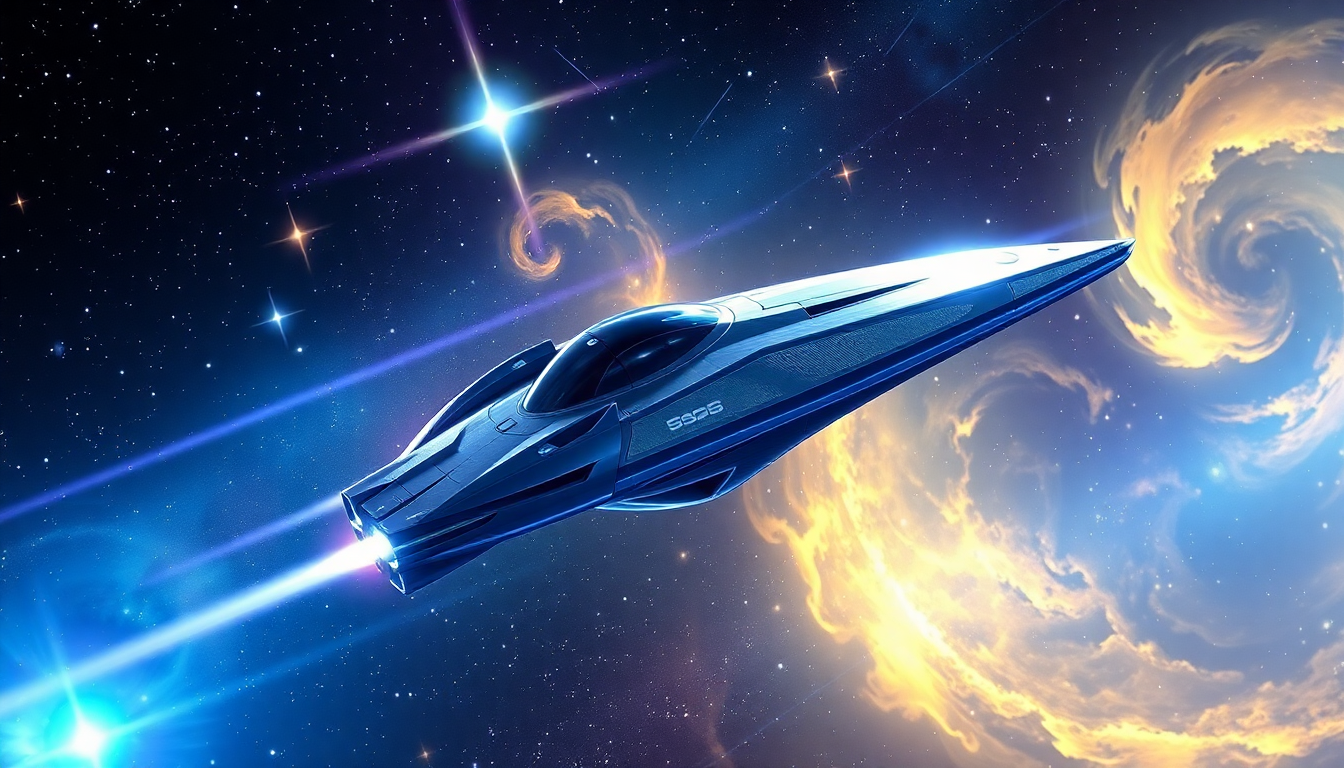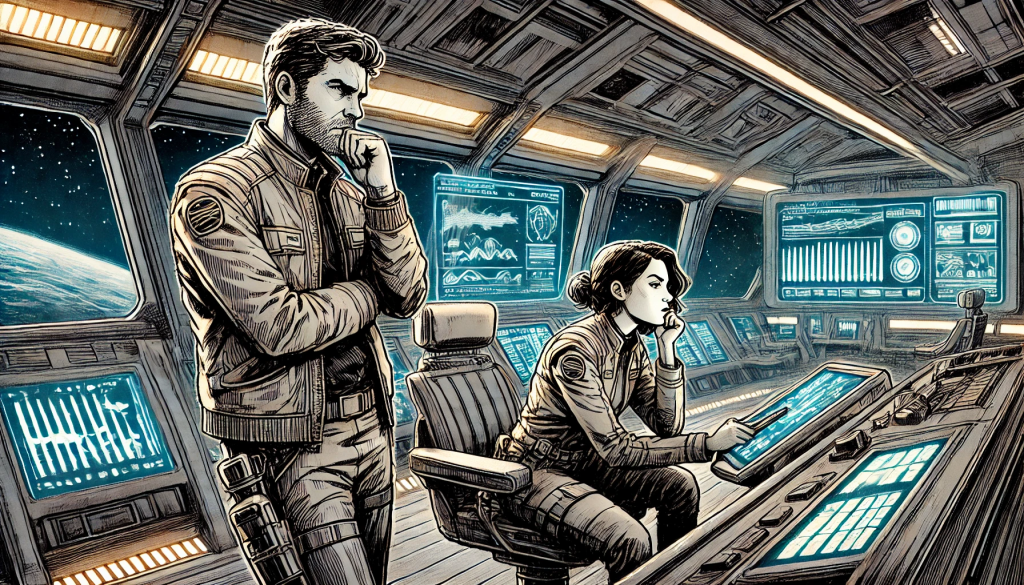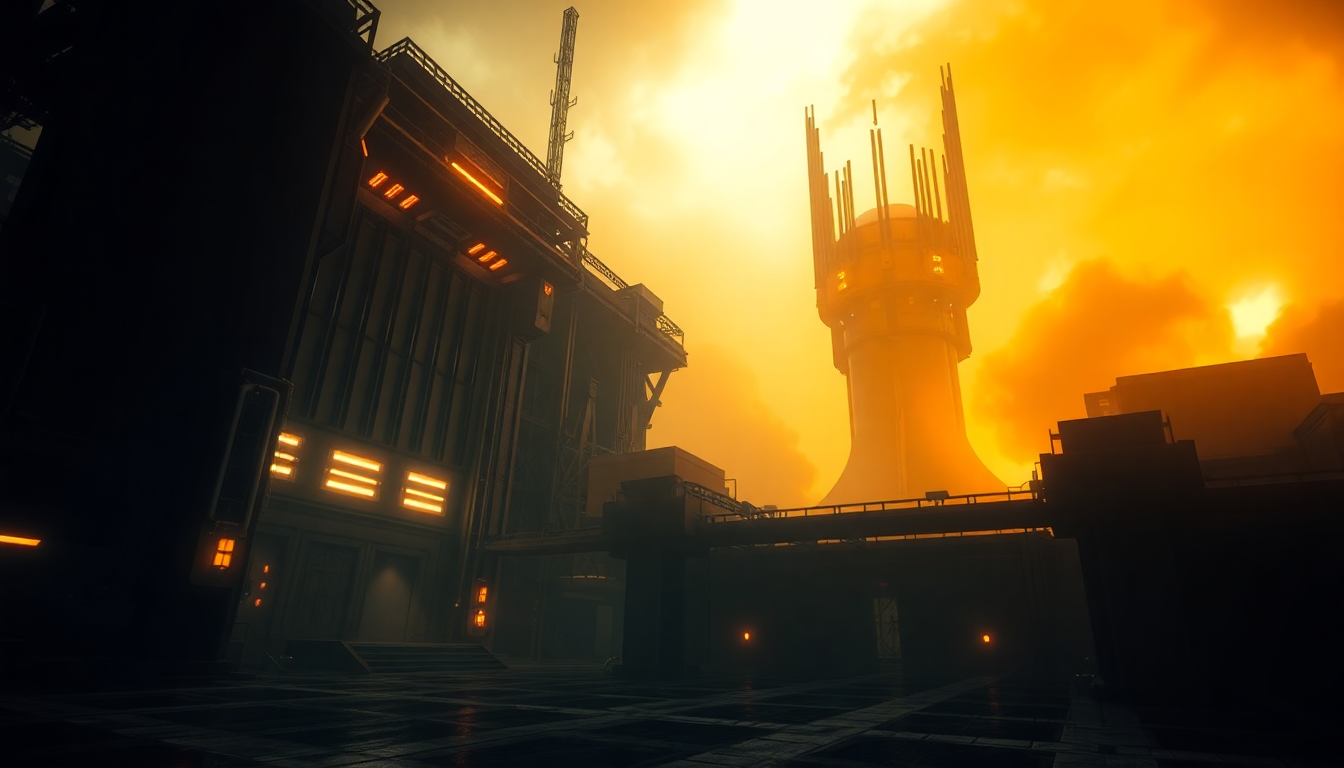
When the Osiris left Earth’s orbit, Captain Eli Zayne stood on the bridge, hands clasped behind his back, watching his home shrink to a distant pinprick. Oklahoma’s dust-choked fields still haunted his memories, a world where survival was a fight and the future seemed out of reach. The Osiris, a sleek marvel of nuclear technology, represented something Zayne had always craved: escape. No dust storms, no droughts—just infinite possibility in the dark expanse of space.
The crew of nine celebrated their departure like pioneers heading into the unknown. It was humanity’s boldest attempt yet to reach Proxima Centauri, the closest star system. The U.S. Space Force had banked heavily on this mission, using nuclear microreactor propulsion as a gamble on the future of human space travel. If they succeeded, humanity would no longer be confined to Earth. If they failed? They’d drift through the void, a monument to ambition undone by hubris.
Six Months Out
The first six months passed in routine humdrum. The crew adjusted to the rhythm of space life—monotonous days, long silences, and endless maintenance checks. Until one day, Lieutenant Cara Vogel spotted a flicker on the reactor’s diagnostics panel.
“It’s probably recalibrating,” Cara muttered, her sharp eyes locked on the monitor. She ran a hand through her thick, dark hair, frustration simmering. “The system’s feedback loops are finicky.”
Cara had spent her life proving people wrong. As a kid growing up in Michigan, she tore apart radios and lawnmowers in her parents’ garage, driven by an insatiable curiosity—and later, a need to prove she was more than just a diversity statistic in engineering school. Joining the Osiris was her victory lap, but this mission had become far more than just proving herself. The longer they traveled, the more she felt that her entire self-worth was tied to this ship running smoothly.
The Thruster Misfire
One week later, Zayne was jarred awake by the sudden shudder of misfiring thrusters. He shot up from his bunk and sprinted to the bridge, heart hammering.
Cara was already there, fingers flying across the console. “Mid-burn malfunction,” she said without looking up. Her voice was calm, but Zayne knew her well enough by now to hear the tension buried beneath the surface.
Zayne clenched his jaw. Space didn’t forgive mistakes. A single miscalculation could spell disaster—burn too much fuel, and they’d never make it to Proxima. Use chemical thrusters for too long, and their reserves would dwindle before they even reached the halfway mark.
Survival Isn’t Just About Technology
The Osiris wasn’t just a test of propulsion technology—it was a test of endurance. Zayne’s years in the Air Force had taught him that survival was about more than gear or tech. It was about the people beside you and the ability to make the right decisions when everything fell apart.
He glanced at Cara, who was chewing on the inside of her cheek—a telltale sign that she was doubting herself. Zayne knew that look too well. He’d worn it himself in the cockpit, on missions where the stakes felt too high and failure wasn’t an option. But out here, far from home, failure wasn’t just possible—it felt inevitable.
Unforeseen Problems and Human Tensions
Day by day, the mission became a series of small, irritating obstacles that began to grind on the crew’s patience. The air filters clogged more often than expected, forcing extended maintenance shifts. A glitch in the communication system delayed reports back to Earth. Even the chemically synthesized food—designed to be neutral—somehow managed to taste worse with every meal.
Tempers frayed. Arguments over trivial things—where to store spare tools, whose turn it was to run diagnostics—flared up more often. Zayne found himself playing referee more than captain. Space has a way of amplifying small frustrations into crises.

The Reactor That Wouldn't Play Nice
The nuclear microreactor—the heart of the Osiris—was supposed to run smoothly, but the small hiccups persisted. Cara spent long nights in the engine room, poring over every line of code and recalibrating energy flow to keep the reactor in line.
“This isn’t how it was supposed to go,” Cara confessed one night, slumped on the floor of the engine room. “It’s like the universe doesn’t want us to get there.”
Zayne sat beside her, staring at the blinking lights of the reactor. “The universe doesn’t care,” he said quietly. “It’s just us.”
That was the truth that kept gnawing at him—out here, there was no cavalry. No backup. If the Osiris failed, no one would save them.
A Breath Away from Mutiny
Tensions hit a boiling point during a near-catastrophic burn miscalculation. The thrusters fired out of sync, throwing the ship off course and forcing the crew to use precious chemical reserves to stabilize.
Cara lost it. “You think this is my fault?” she snapped at Zayne after the emergency was resolved. “Do you even know how much I’ve done to keep this thing running?”
Zayne held his hands up, trying to calm her. “No one’s blaming you, Cara.”
She shook her head, tears of frustration welling in her eyes. “It feels like everyone’s waiting for me to screw up.” Zayne recognized the fear behind her words—it was the same fear that had driven him all his life: the fear of being the reason everything failed.
Moments of Grace
The pressure might have broken them if not for the small moments that pulled them back together. A birthday celebrated with rationed chocolate bars and zero-gravity dancing. A quiet conversation during a maintenance shift where Cara confided that her father had never believed she could make it this far—and that proving him wrong was the reason she kept going.
Zayne opened up, too, sharing stories from his childhood on the farm, where failure wasn’t just a possibility—it was a certainty. “You can’t win every day,” he told her. “But you show up anyway.”
The Final Stretch
As the Osiris approached Proxima Centauri, the weight of the journey settled over the crew. Every system had been pushed to its limits. Every decision, every argument, every moment of doubt—they had all shaped the mission and the people aboard.
The reactor was stable now, thrumming quietly in the background. The stars outside the viewport blurred into streaks of light, a reminder of just how far they had come—and how much farther humanity could go.
Arrival at Proxima Centauri
When the alien sun finally appeared on the horizon, Zayne and Cara stood side by side on the bridge. They had made it. Through every malfunction, every argument, and every moment of doubt, they had reached the edge of human ambition.
Cara let out a shaky laugh. “We did it,” she whispered, as if saying it aloud made it real.
Zayne smiled, the tight knot in his chest finally loosening. “Yeah, we did.”
They hadn’t just survived—they had proven something to themselves and to each other. That the journey mattered as much as the destination.
What Would You Do?
Would you embark on a mission knowing that the hardest part wouldn’t be the technology, but the people beside you? Would you trust your crew—and yourself—when everything seemed to go wrong?
Join the conversation below, and become part of the "Shining City on the Web". The stars may be distant, but the journey begins with those bold enough to make the leap.
The source...check out the great article that inspired this amazing short story: How Nuclear Microreactors Will Change Space Travel Forever


















Post Comment
You must be logged in to post a comment.